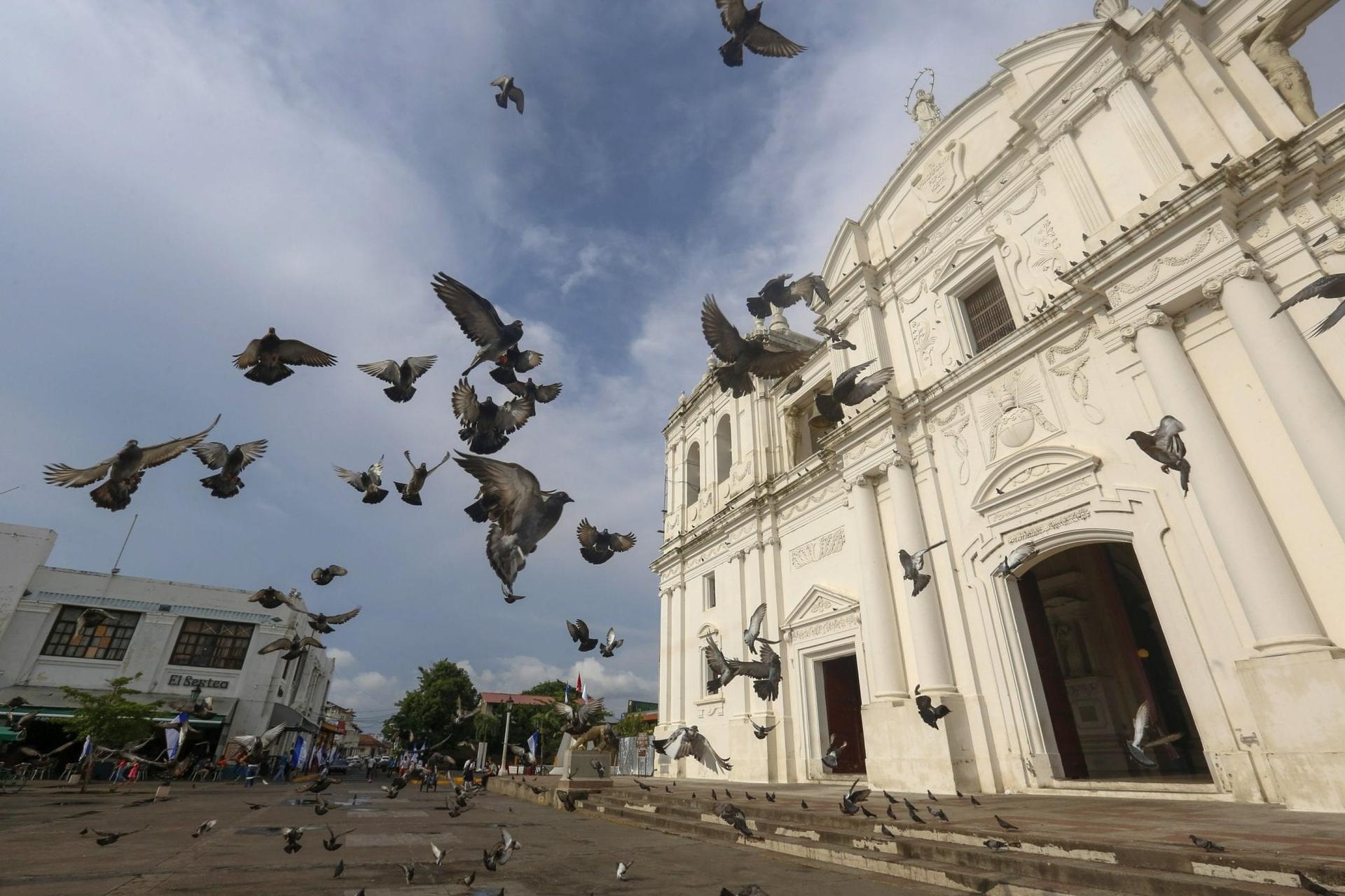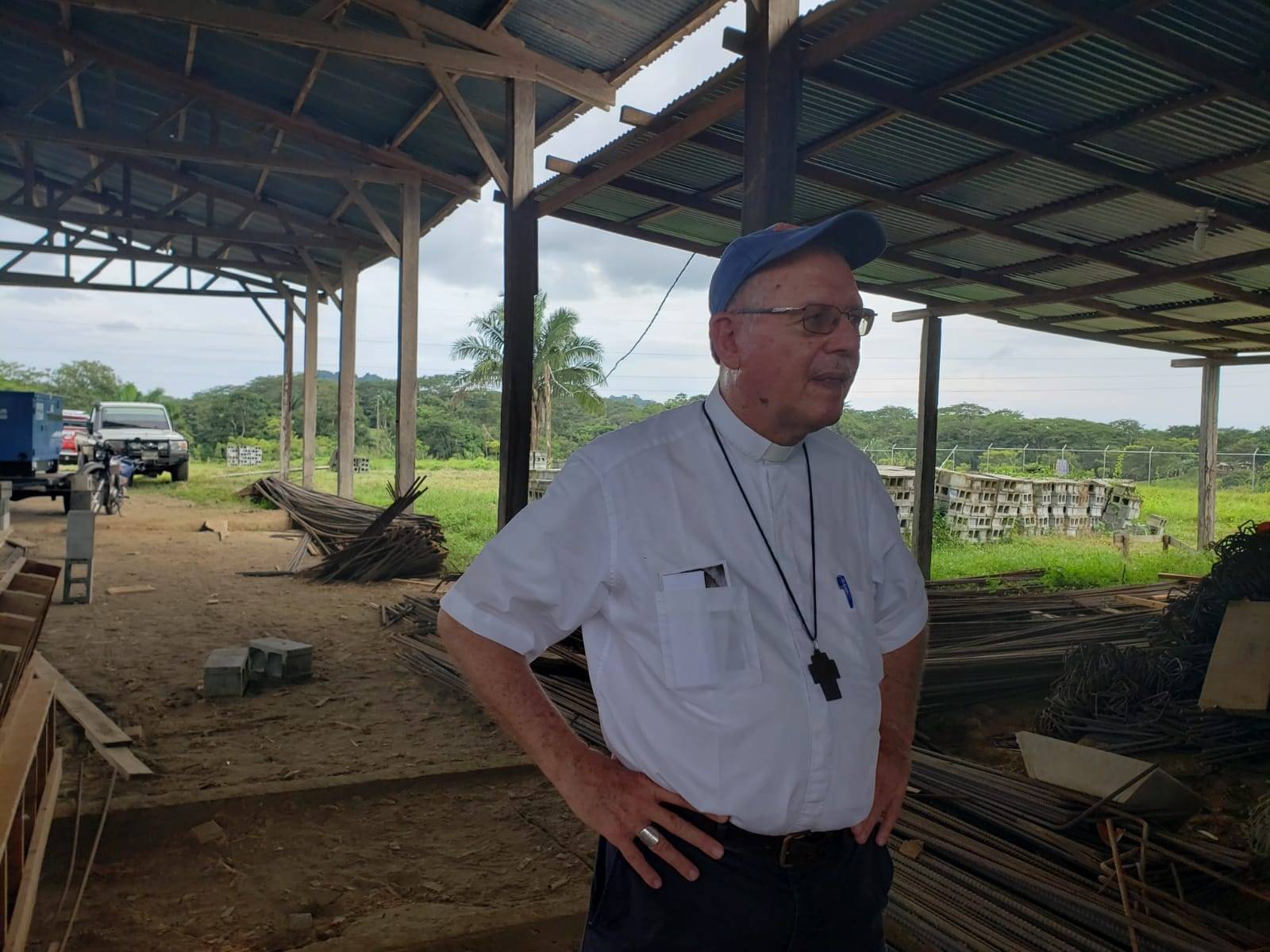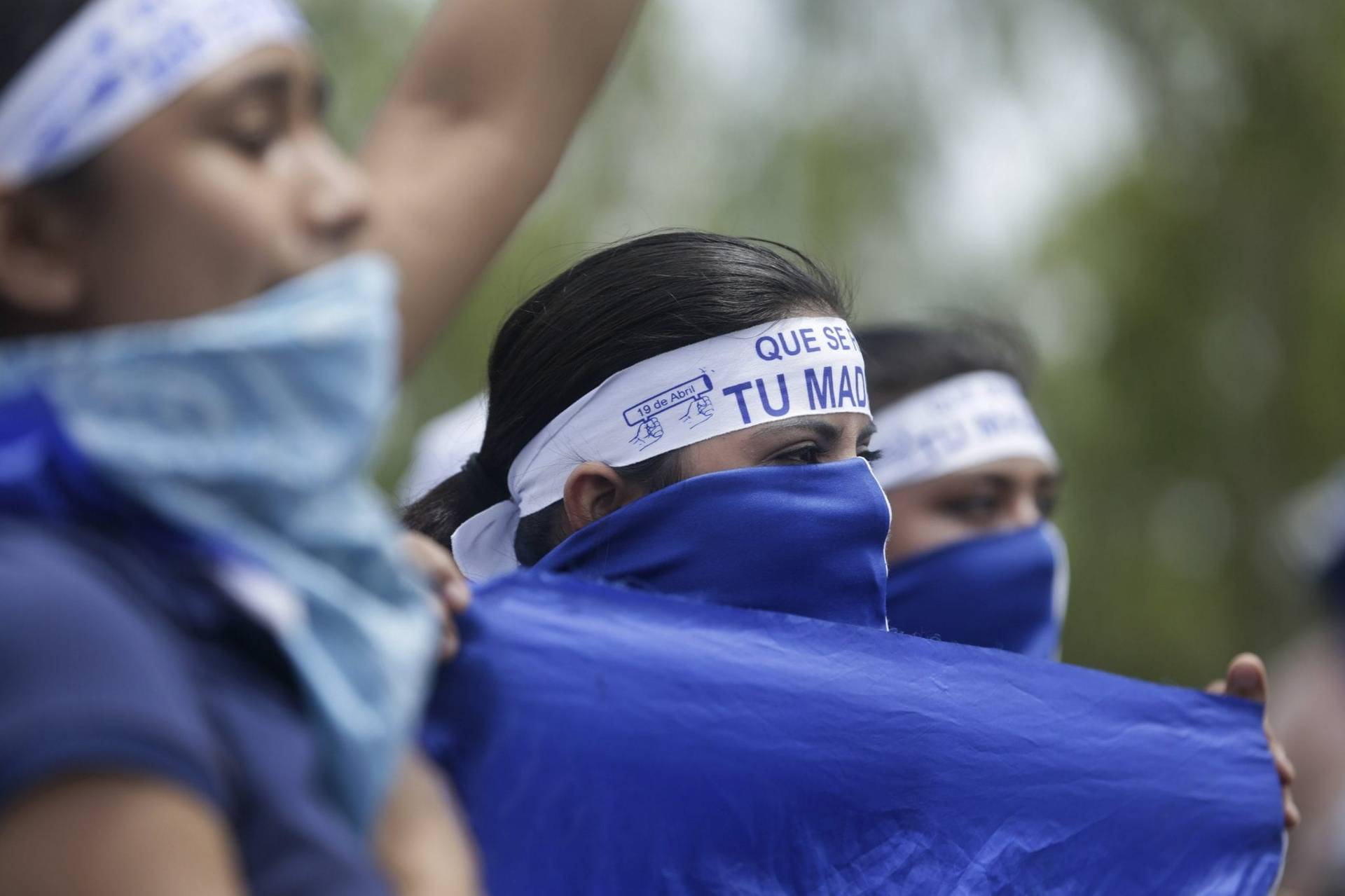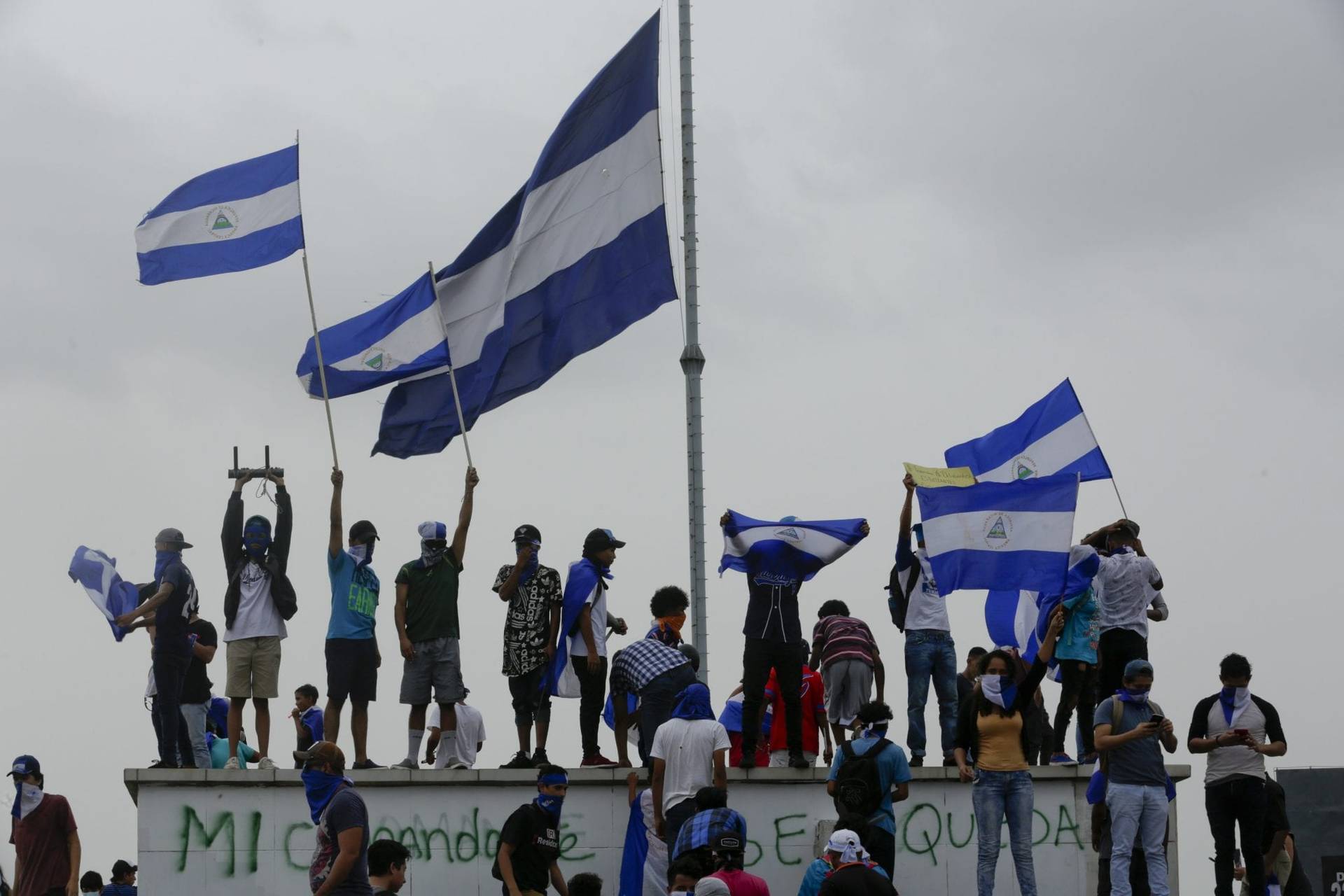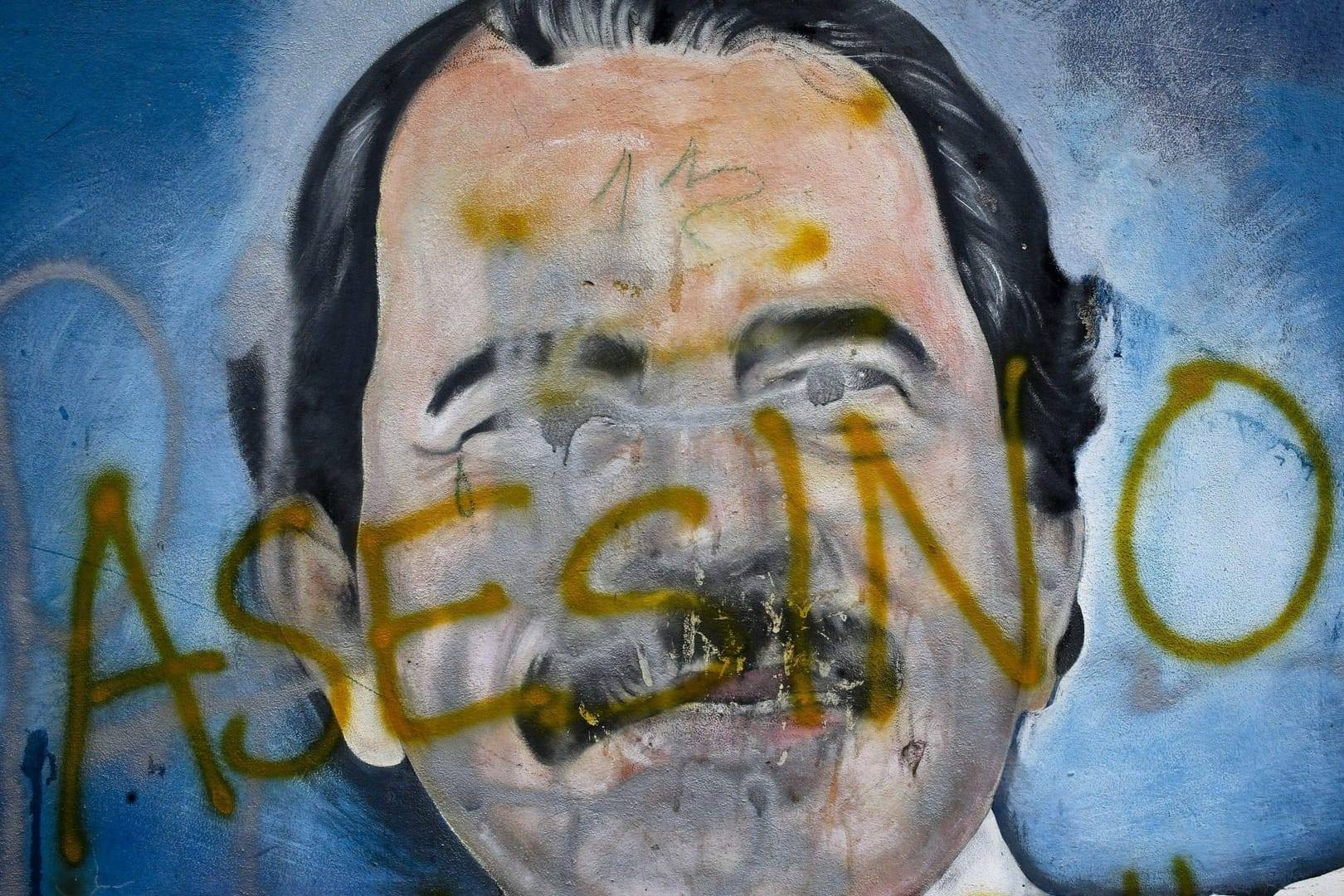NICARAGUA — After 12 consecutive years of the same party and president in power, today a scant 30 percent of Nicaraguans approve of the regime of President Daniel Ortega and Vice President Rosario Murillo, his wife, and some of that support may simply come from people who’ve become accustomed to receiving state payouts.
Yet observers say that today there’s not a single member of the opposition who could come up with 31 percent of the votes, which is what he or she would need to become the next president of Nicaragua, thanks to a constitutional reform pre-dating Ortega.
“The situation cannot be resolved with just any leader,” said a brother at the Augustinian Monastery of Esteli, about 70 miles from the capital, Managua. “The one who will solve the situation is Jesus himself.”
The brother doesn’t think God will come down and save Nicaragua, but that prayer, and some courageous bishops, will hopefully inspire the hearts of not only the people when the time for the next presidential elections rolls around – 2021 is when it’s scheduled – but also of opposition leaders.
“Today we don’t have a clear candidate, so we pray that someone will come, and that that someone will have the well-being of the country in mind,” he said.
By courageous bishops, he means two in particular: Bishop Silvio Jose Baez, auxiliary of Managua, and his own bishop, Juan Abelardo Mata Guevara. Both have been outspoken in challenging the government, and though some of the remaining eight bishops in the country don’t necessarily share their outspokeness, all those Crux spoke with agree in principle: Things have to change.
“Baez and Mata are brave, they tell the government what the government doesn’t want to hear but needs to hear,” the friar said. “And they do so to their faces.”
One of the brothers living in the monastery was a part of dialogue efforts at a national level, and he said that as he was walking in or out of the meetings, held in the national inter-diocesan seminary of Our Lady of Fatima in Managua, many of those in the government would tell the religious, in admiration, that they had shaken Mata’s hand.
There’s actually a meme that has gone viral, Abelardo con las tapas Mata, with tapas being a popular way of saying “mouth,” and Mata in Spanish meaning “kills.”
“Following Jesus’ line, the bishops are betting on dialogue, but we’ve seen no will from the government,” another religious brother from the same monastery said on Nov. 27. “The bishops know that, sooner or later, Ortega will have to fold.”
And it’s for that moment the cloistered brothers are praying for God to “illuminate” those who are involved in the dialogue, for a new leader to arise.
“Our faith is that, after so many punches, the person who will come will be sent by God,” one of the brothers said, with the support of the others. “Without that faith, the situation is overwhelming, it asphyxiates us.”
The relationship between the Catholic church in Nicaragua and the government is a complicated one. In the 1970s, many priests allied themselves with the Sandinista National Liberation Front (FSLN) to bring down the Somoza dynasty, which ruled the country for six decades.
“But the case today is different, we’re not allied to anyone, the Church denounces the injustice of those who are suffering and being oppressed, the Church is always on the side of the oppressed,” the brother added. “The role of the Church in Nicaragua today and in the future is to foster reconciliation.”
The friars believe that if the civil uprising turned violent as quick as it did, with over 700 people killed, it’s because the country is still bleeding from the wounds of the civil war, and this has caused deep divisions among families.
An even bigger challenge, they said, is the fact that 60 percent of families in Nicaragua are “dysfunctional,” meaning they’re missing a parent or children are left to care for their grandparents or siblings.
“If there’s no family nucleus, we become prey to ideologies,” one of the friars said.
One of the nine bishops interviewed by Crux, who requested to remain anonymous as he was speaking on his own and not that of the bishops’ conference, said the only way out of the crisis is an intervention by the United States and the international community.
“Armed or not, hopefully not, without foreign help and pressure the status quo will remain and the situation will get worse for the people,” the bishop said.
Though few are old enough to remember, for a Nicaraguan to call for U.S. intervention is remarkable, as the country’s history has forever been shaped by American invasions from 1912 to 1933, as part of the Banana Wars, when the U.S. military intervened in various Latin American countries. In the case of Nicaragua, the United States wanted to stop any other nation from building the Panama Canal.
They also fought against Augusto César Sandino and defended Juan Bautista Sacasa and Anastasio Somoza García, who in 1937 staged a coup to take over the country. Though there were a few “puppet” governments in between, Somoza and his son ruled the country for 60 years.
Without international pressure, the bishop argued, Ortega and his wife will remain in power, people will continue to flee the country and Catholics will remain fearful of going to Mass.
A second source backed the need of international support for the Nicaraguan people, though stressed that it can’t be in the form of smuggled weapons or through economic sanctions, which “harm the people and make the government stronger,” but should instead be through diplomatic relations.
“No one is going to fight for Ortega and Murillo if the crisis continues,” a priest from the diocese of Matagalpa said. “They’ve lost their social base, and today the only ones willing to support Ortega are from outside Cuba and Russia, and they do so through weapons and intelligence training.”
“Who out there is fighting for the rest of us?” he said.
A priest in Managua talking with Crux on Nov. 16 said the situation since April 18 has reopened the wounds of the revolution, making them even deeper, meaning that “we’ll need more time, and the role of the Church will be key.”
“We need to talk about the spiritual healing of hundreds of thousands,” he added. “Many families woke up with enemies within.”
The Catholic Church is not exempt from that polarization, particularly in the cities, where many followers of Ortega feel “we betrayed them, that we supported the blue and whites more than we supported the government.”
“What they don’t see is that we supported everyone who was hurting, regardless of their political flag,” he said, acknowledging that in the “heat of the moment,” some priests and even bishops might have used stronger words from the pulpit than they should have.
“We need to learn to leave ideology at the doorsteps of our churches, but this is not easy, because many are deeply identified with their political views, and many grew up seeing Obando praying at the public events of Ortega,” the priest said.
Cardinal Daniel Obando y Bravo, who died in June of this year, was a controversial figure in the history of Nicaragua, at times openly supporting Ortega, including during the rebellion that brought down Somoza, in the late 1970s and during his first years in power.
Coming from a peasant family, Obando played key roles in negotiations since the end of the Somoza dynasty until he retired as archbishop of Managua in 2005.
According to his obituary in the local newspaper El Nuevo Diario, Somoza, who in private referred to the cardinal as “commander Miguel,” never forgave the prelate for the fact that, in the middle of a civil insurrection, he promoted “a pastoral [policy] that openly called for his resignation.”
Yet when Ortega first rose to power, in the 1980s, Obando became critical and accused the Sandinista party of trying to “neutralize religious activity in Nicaragua.” In 1987, he played a key role in negotiating the peace process between the national government and the “Contras” which ended in a peace accord and a ceasefire in 1990.
The cardinal would continue to mediate during the government of Violeta Barios de Chamorro, which lasted from 1990 to 1997, and then played a key role in the election of Liberal Arnold Aleman in late 1996, when, during a homily, he compared Ortega with a dying snake that shouldn’t be welcomed back because once it recovered its vitality, it would “kill its cooperator.”
Many observers credited that homily for Ortega’s loss, and again in 2001, when, during a homily, Obando spoke about the “dark past” of the Sandinista leader defeated by Enrique Bolanos.
Yet in Sept. 2005 Obando celebrated the wedding of Ortega and Murillo, with whom he had reconciled in July 2003.
In 2007, when Ortega got back to power, Obando was named president of the Commission of Peace and Reconciliation, and in 2012, the government declared the cardinal a “creator of peace” and an “inspiration for the entire Nicaraguan people for his vocation to service and love.”
When Obando died, Ortega declared national mourning. He hadn’t spoken in public about the latest crisis in the country, but according to Brenes, the two had spoken on the phone and his predecessor had “shared his support to this server as coordinator of the commission [mediating the dialogue in Nicaragua] and to the entire bishops’ conference.”
Dialogue, locals agree, is the only way forward, though the challenge of who will come after Ortega is something that looms over Nicaragua like a dark cloud.
Yet, in the words of one of the country’s archbishops, the seed of dialogue, though so far failing, is planted in Nicaragua, and it’s the only way to solve a daily conflict within families and among friends.
“Why did the civil war end? Because people sat down and talked, and the Church was right there,” the archbishop said. “We’ll be there now too.”
